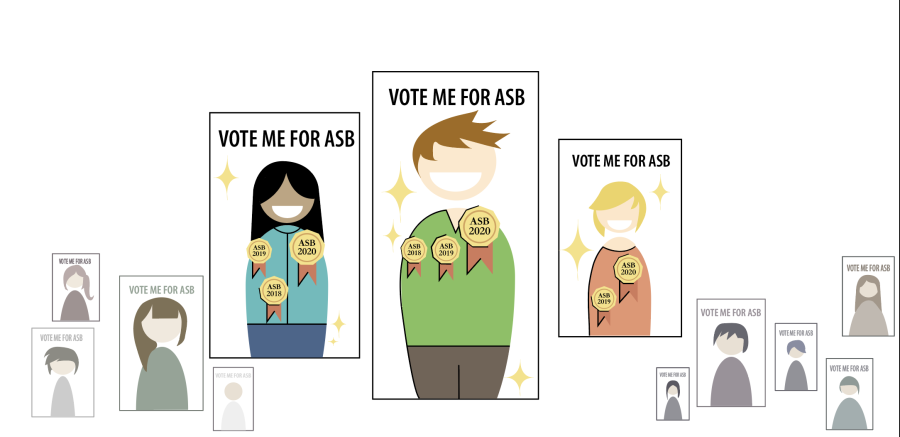While I knew of my middle school’s student government, its influence was limited, so like many students, I was indifferent to it. But with my transition to high school, I felt a renewed sense of responsibility to engage.
In my freshman year, the first ASB election passed quickly. After a few weeks of campaigning for their desired positions through posters, social media posts and recorded speeches, the candidates were voted for by the student body.
During my sophomore year, as I scrolled through the ASB officers I recognized several names of students elected freshman year. I wondered how the same people were reelected, but I thought little of it.
But then came ASB elections during my junior year. Once more I recognized the same people securing spots. This time, I thought, it couldn’t just be a coincidence. The student body was voting for the same representatives every year.
This creates an exclusivity surrounding ASB both in terms of the small number of applicants, which leads to an increased chance of reelection for incumbents, and the lack of perspectives on ASB since the same students are elected over and over. Paly has over 2,000 diverse students, so how can the same small group of people represent such diversity?
They can’t. At least not very well.
Part of the problem lies in the fact that for new students interested in ASB, applying can seem futile. Students rarely vote for newcomers, which diminishes these newcomers’ desire to apply.
And when incumbent students run, they often win because voters prefer their experience and knowledge. What the student body fails to realize is that for ASB, experience and efficiency are not the same.
Indeed, this misconception comes from Paly’s infamous expectation for excellence. Specifically, it presents itself as the notion that more experience on ASB lends itself to a higher quality of performance.
Because voters seem to prefer past experience, returning ASB candidates who already have little opposition further increase their chances of reappointment.
However, we should keep in mind that ASB isn’t the only platform to gain skills in student leadership. For example, students may acquire such skills through volunteering, childcare and the like.
By appealing to diverse experiences, we’re more likely to introduce students with innovative perspectives. Hence, experience does not translate to performance.
In order to prevent students from being disadvantaged in future ASB elections, the group should establish term limits of one year for elected officials.
You run. You win. You serve for one year, and then you allow others a fair chance to run. After serving for one year with a title they can put on a resume, then they can continue contributing next year.
For example, they can provide insight to current officers or assist in activities. If students are truly interested in ASB and student representation, they will continue to work on things they believe in without needing a title.
ASB positions are only available to students in middle school and high school, and thousands of students pass through the school district yearly. It is thus unproductive to allow students to run continuously without considerable opposition, as it contradicts the presumably equitable opportunity of student leadership. Term limits would reduce exclusivity and allow for more diverse perspectives in student government.
To ASB’s credit, they have fulfilled their primary responsibility — running student activities — especially considering the return to on-campus learning.
But even if these officials are adequately executing their duties, others with the same opportunity could do so just as well.
With a more diverse student government, representation of the student body would improve and Paly
would better support a community of inclusivity and equitable opportunities for all students.

